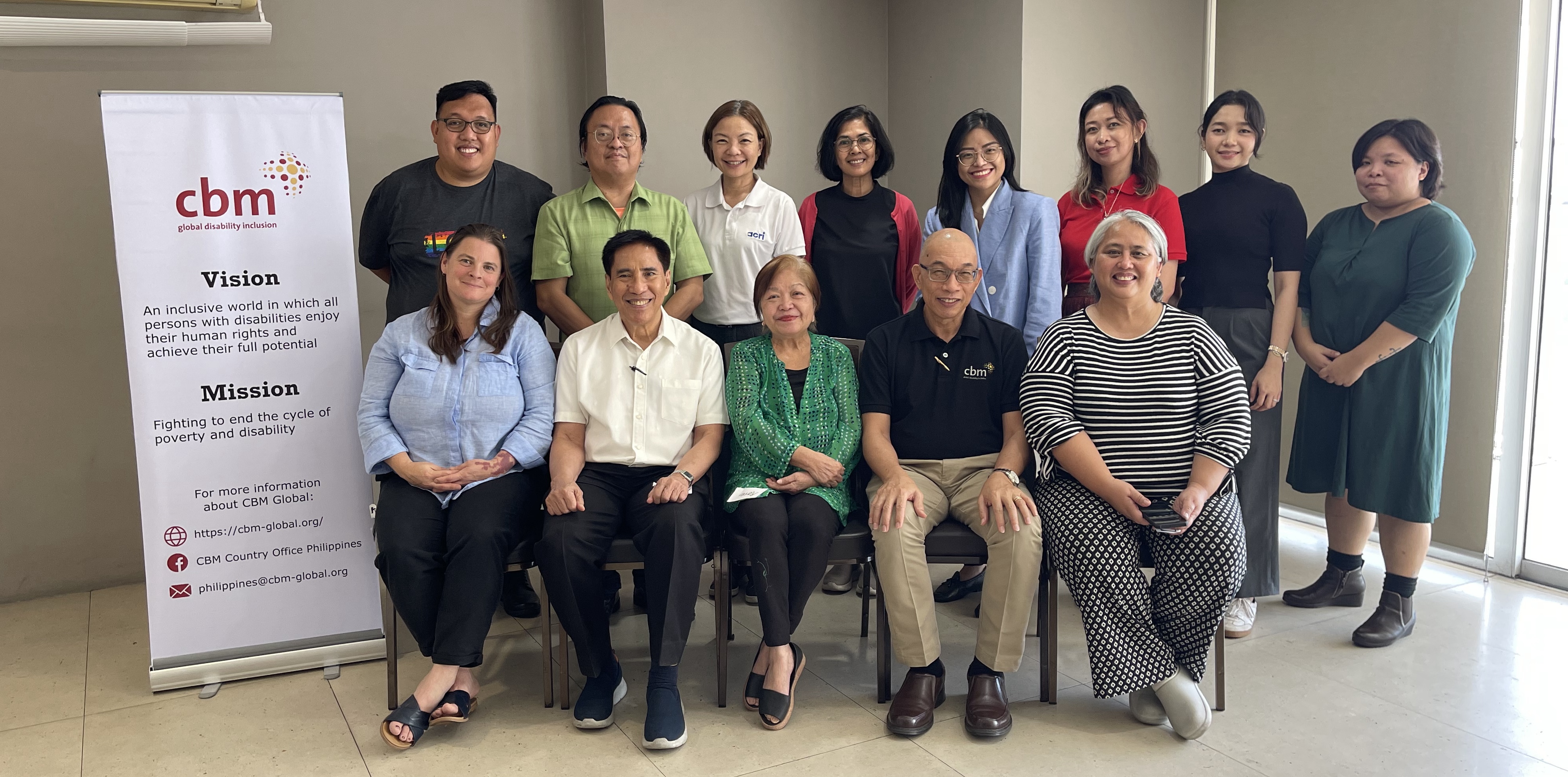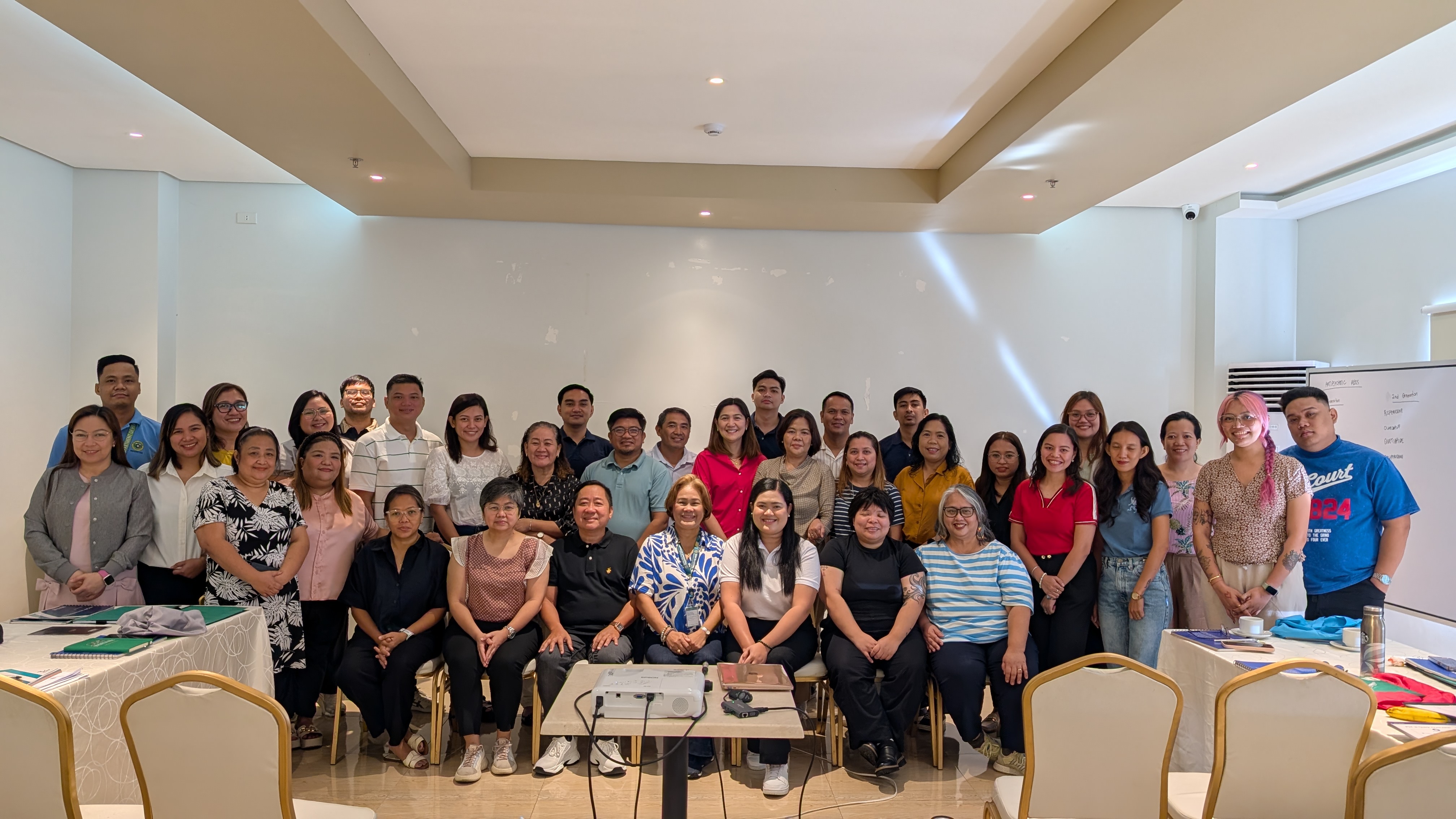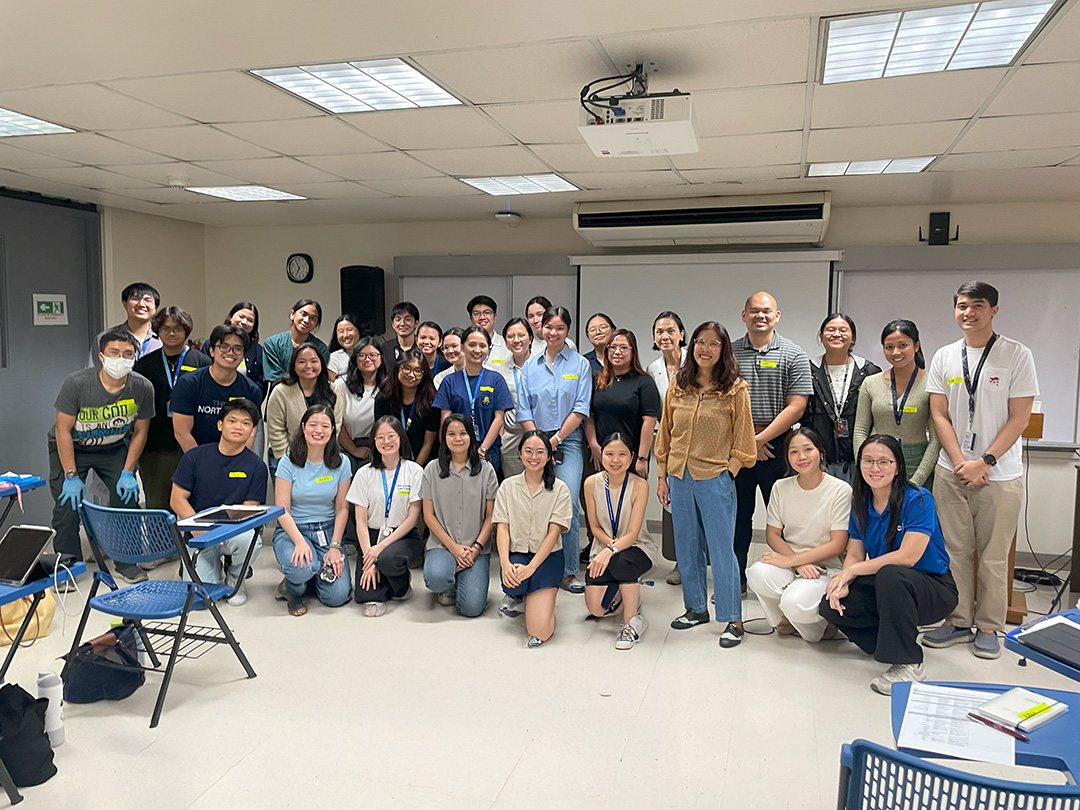
Rise and Thrive Program Team successfully concludes preparatory project design workshop
The Rise and Thrive: Building Resilient Communities through Inclusive Mental Health program in Fiji and the Philippines is a four-year regional program supported by the Australian Government through its Partnerships for a Healthy Region (PHR) initiative.
Rise and Thrive aims to develop a model that improves the wellbeing of people with mental health conditions or psychosocial disability through improved community support, access to services, and systems that reinforce rights, equity, and inclusion. As part of its preparatory phase, the Philippines Project Team composed of lead implementing partner ASMPH Center for Research and Innovation (ACRI), and co-implementing partner Balik Kalipay Center for Psychosocial Response, Inc. (BKC) underwent a three-day project design workshop. The workshop was facilitated by CBM Australia’s Senior Programme Coordinator Kirsten Bate with support from the Rise and Thrive Programme Team, Sucelle Deacosta and Kyra Ballesteros. Through the workshop process, the team sought to develop the theory of change, its logical framework, and a collaborative action plan that will guide the implementation of the multi-year program over the next four years in the country.
Between 14-16 August 2024, the Philippine team identified and prioritized strategies, approaches, and activities to be implemented through Rise and Thrive in the country. During the workshop, key learnings from various stakeholder consultations at the national and local levels, lessons learned from the community mental health programmes of CBM Global Disability Inclusion in Indonesia, and the recently concluded GEDSI workshop were shared.
(L-R, standing) Balik Kalipay Center for Psychosocial Response, Inc (BKC) Director for Research and Development, Prof. Nepthtaly Botor; ACRI External Consultant, Mr. Ramil Gulle; ACRI Director, Dr. Lourdes Tanchanco; BKC Executive Director, Ms. Mae Medina; ACRI Faculty Consultant, Ms. Arianna Amit; CBM Global Disability Inclusion (CBMG) Programme Coordinator for RHP, Ms. Sucelle Deacosta; ACRI Research Associate, Ms. Myla Levantino-Firmalo; CBMG Programme Officer for RHP, Mx. Kyra Ballesteros.
(L-R, seated) CBM Australia Senior Programme Coordinator, Ms. Kirsten Bate; ACRI Faculty Consultant and Former Secretary of Health, Dr. Manuel M. Dayrit; BKC President, Ms. Rose Bautista; CBMG Country Director, Mr. Hercules Paradiang; ACRI Project Leader for Mental Health Science, Dr. Dinah Palmera Nadera. Missing from photo is BKC Program Director, Ms. Abbey del Puerto.
Day one of the workshop laid out the project's policy priorities to ensure its alignment with regional and national frameworks, and with the aims of the PHR initiative. Here, the team discussed cross-cutting and thematic concerns including climate and health, gender equality, disability equity and rights, and First Nations Engagement. The team identified key project stakeholders, which include the Department of Health (DOH), the Department of Social Welfare and Development (DSWD), the Department of Education (DepEd), and the World Health Organization in the Philippines. Engagement with local chief executives, regional mental health coordinators, Provincial Health Offices (PHO), Persons with Disability Affairs Offices (PDAO), Disaster Risk Reduction and Management offices (DRRMO), local civil society organizations (CSO), and people with lived experience were identified as vital at the community level. The program team also discussed the relevant national and international frameworks that will guide its activities and ensure its compliance with national and international strategic goals.
Central to the program design, an updated situational analysis was presented by ACRI Project Leader for Mental Health Science, Dr. Dinah Palmera Nadera. The document provides contextual and localized knowledge on the health infrastructure, systems, and interventions available in Rise and Thrive’s prospective target sites. The report notably contained feedback about the initial project design from people with lived experience. The discussion clarified the program’s perceived priorities at different levels: from primary care at the provider network, to emergencies serviced by the health care provider network, to the end-referral hospitals.
Kirsten Bate leads the program team’s discussion to build the program logical framework, expected outputs, and then the attached activities.
On the second workshop day, the team participated in a sharing session to discuss lessons learned from similar projects, which may further inform the planning and implementation of Rise and Thrive activities. Insights ranged from initiatives to involve men in project activities, the importance of addressing stigma and shame, and the need to engage with and address gendered stereotypes that may influence the behaviors of persons of diverse SOGIESC in their communities. The contribution of persons with lived experience advocating for mental health and disability was highlighted as another effective intervention to address and reduce stigma. Other critical insights included the need to ensure financial resources secured through municipal or city-level ordinances.
During a break-out session, team members discuss barriers to receiving appropriate mental health care experienced by persons with disability.
The final workshop day was dedicated to building the program’s logical framework, identifying key assumptions and risks, and the monitoring, evaluation, and learning plan and framework. In small groups, the program team delved more deeply into programmatic concerns to discuss expected program outcomes and outputs. At this point, the program team began to identify project activities to be implemented across all project sites. This exercise ensured that cross-cutting and thematic concerns were top-of-mind across every level of project implementation.
Overall, the project design workshop provided the project team with a valuable opportunity to establish a shared understanding of not only the vision and goals of Rise and Thrive but also each organization's core competencies and expertise.
-

Strengthening Community Mental Health: mhGAP Training in Albay
From July 2 to 4, 2025, frontline health workers in Albay completed intensive mhGAP training under the Ka-ginhawa Project, a partnership initiative supported by the Australian Government, CBM Global Disability Inclusion, and the Balik Kalipay Center for Psychosocial Response. The three-day program equipped local providers with essential skills to assess and manage mental health conditions while strengthening referral networks across the province.
-

ACRI Conducts Nutrition Focused Physical Examination Training to Advance Autism Research
ACRI conducted Nutrition Focused Physical Examination Training on June 18, 2025, as part of an autism research project comparing children with ASD to their peers. Led by Dr. Maria Christina Kristin S. Reyes, the training equipped researchers and student assistants with hands-on skills to conduct NFPE with children aged 5-9. The peer practicum component built clinical team capacity to accurately administer assessments for the research protocol.
